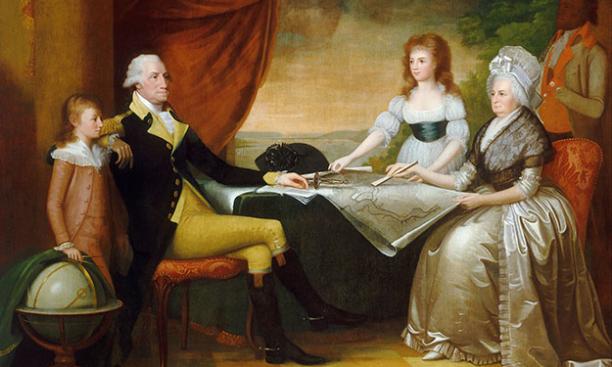
The Washington Family, by Edward Savage, part of the Mellon Collection at the National Gallery of Art, shows the first president with wife Martha, her granddaughter Eleanor, and grandson George Washington Parke Custis, then 10 years old.
[

The Washington Family, by Edward Savage, part of the Mellon Collection at the National Gallery of Art, shows the first president with wife Martha, her granddaughter Eleanor, and grandson George Washington Parke Custis, then 10 years old.
